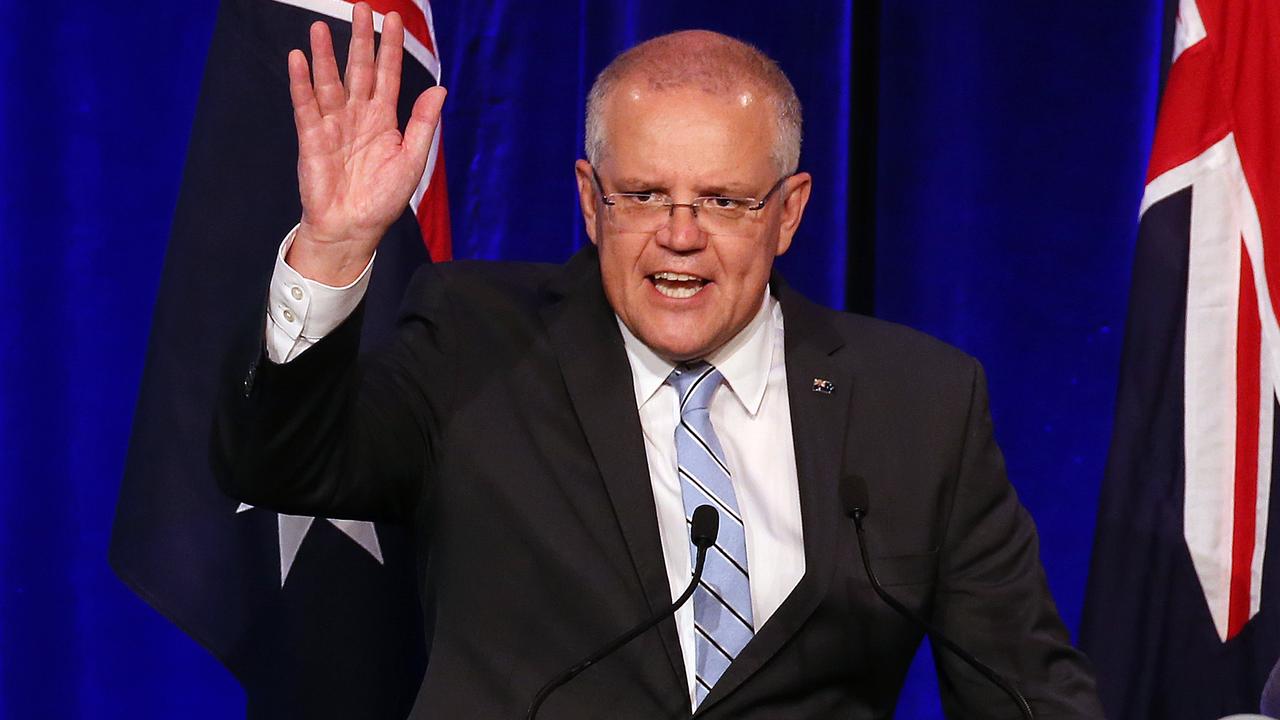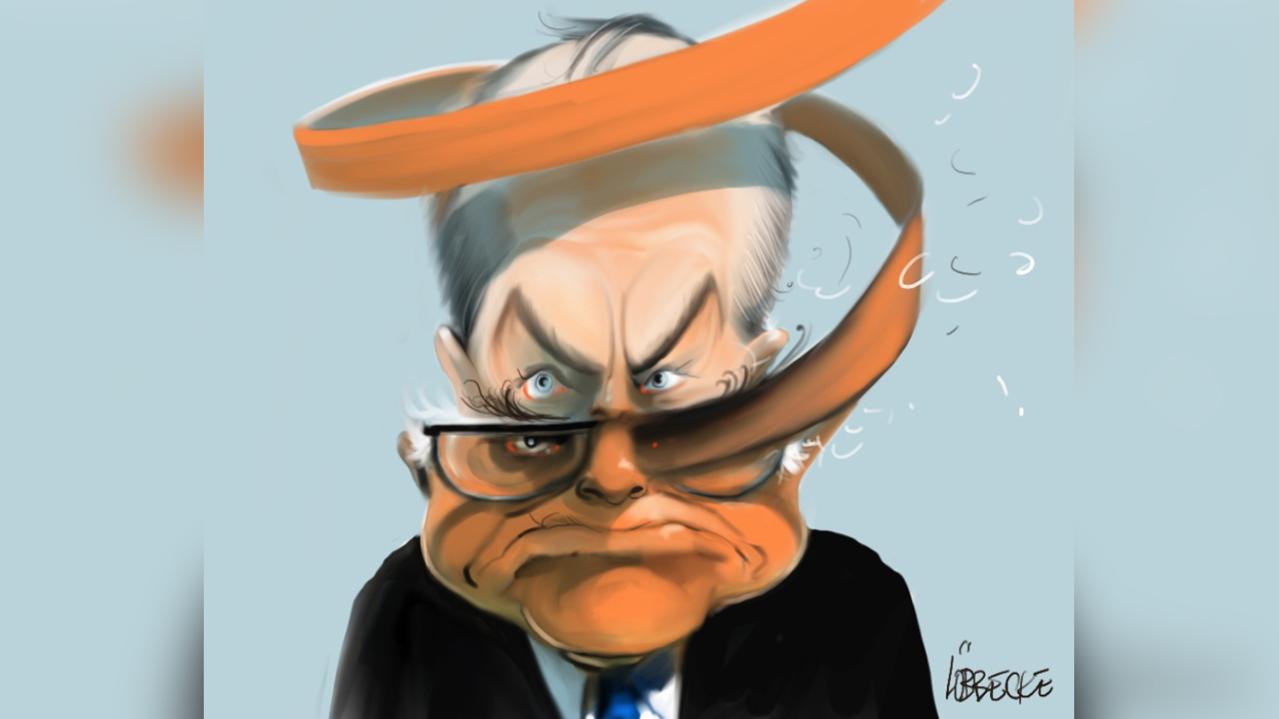Parliament plods along party lines

IF there is one thing that must really frustrate voters it is the narrow partisanship our political class adheres to. There is virtually no such thing in this country as a politician breaking ranks from their party to vote according to their conscience. And believe you me, the political class do not always agree with the policies their leaders put forward.
I spend plenty of time listening (on background of course) to backbenchers and frontbenchers alike bitching and moaning about the policies their own sides pursue. Occasionally, a conscience vote is provided when MPs can vote as individuals, like when Labor allowed for the vote on gay marriage (the traditional party of the conscience vote, the Liberals, did not allow one that time).
But conscience votes only happen on certain issues, or to avoid the political pain of an internal party debate. There is a very funny scene from the 1992 film The Distinguished Gentleman where members of congress speaking to schoolchildren can't recall the reasons for a vote they just participated in. And that's in the US, where members have a far greater knowledge about individual votes because party lines are not so rigid.
Australian partisanship is more robust than in any other part of the world. If there is one thing I remember from studying party systems at university, it is the entrenched nature of the two-party system in Australia and the loyalty it demands from elected representatives. It has got worse lately. The minority parliament, in which every vote counts, has contributed to that.
Once upon a time, the Liberal Party did allow MPs to cross the floor and break ranks when they disagreed with their party position. There is a mythology as to just how often it happened, but happen it did. Today, any individual who does so in the Liberal Party faces two openly articulated consequences: no chance of executive promotion, and an almost certain challenge come preselection time, for disrespecting the powerbrokers and the leader. Times have changed.
In Labor ranks, crossing the floor has never been allowed. It is seen as acting as a rat, punishable by expulsion from the party. This makes sense so far as the collective aims of the labour movement go: workers united will never be defeated and all of that. But it reduces MPs to mere drones, ordered to walk through one door or the other come voting time. One wonders how people who spent a good portion of their lives aspiring to enter the august federal parliament feel about such perfunctory requirements.
It is not as though there is not another way. In the US, as already mentioned, party discipline is low. But there are downside consequences there too. Special interest groups (including nefarious organisations such as the National Rifle Association) get their hooks into representatives via donations or threats of hostile campaigns. The individual member is empowered by the weakness of the party system, but disempowered (perhaps in greater measure) by the money circulating through the system.
Attempts at campaign finance reform designed to give Americans the best of both worlds (low partisanship and low special interest group interference) have so far failed.
The system in Britain is perhaps the better model for Australia by which to reduce partisanship. My summer reading includes the latest instalment of the Alistair Campbell diaries: Countdown to War in Iraq. In it, he points out that questions from MPs on the Labour side of the House of Commons in respect to the war were more vicious and critical than anything levelled at the government by the Conservative opposition.
Given that the Tories by and large supported the war , that must have made things more difficult for Labour strategists and the PM, but more importantly it also provided much-needed debate about intervention in Iraq, which the British system otherwise would have lacked.
An issue highlighting similar bipartisanship here in Australia is how to deal with asylum-seekers. Despite apparent rhetorical differences, both major parties, with the all-important discipline imposed on their MPs, clamour over each other to promote tougher border protection policies, without dissenting voices arguing for a different approach being heard by the public. We can see where it has gotten us: a Pacific Solution reinstalled, yet the boats keep on coming. If only MPs on both sides of the partisan divide were free to dissent more publicly, the debate may have been more nuanced.
Britain, in contrast, has built a culture of limited partisanship within the major parties for centuries. The study of political culture teaches us that replicating such a cultural development via regulations or mandates within parties is hard to do.
Just as the culture of a narrowing right to a conscience vote slowly evolved within the Liberal Party, reinstating it as a right for MPs at some point in the future will take time. And the professionalisation of politicking in this country makes achieving that all the less likely.
But there is a way to reduce partisanship - by reducing the incentives for MPs to adhere to it. The size of government matters in this respect. Large government brings patronage, staffing allocations, government agencies in need of consultants and organisational heads, quasi-government programs that the party in power wants filled with trusted allies.
Big government is not only unwieldy and inefficient, it encourages partisanship. The bigger the government, the bigger the opportunity for partisan lines to develop, and in an age where generous parliamentary pensions have been abolished, you can bet that former MPs and ministers will be on the look-out for a role in such bodies soon after they retire or lose their seats.
This is the downside of Mark Latham's push to remove parliamentary super, agreed to by John Howard to shut the issue down before the 2004 election.
Which MP would risk upsetting their own side by standing up for what they believe in by opposing the partisan line if it means that when out of politics they are unlikely to be considered for a plum government job?
Smaller government has long been an ideological goal of economic liberals. But it may also serve to reduce the level of unwanted partisanship (at least so far as voters are concerned) that has crept into our system.
The risk in pointing this out is that the few economic liberals left on both sides of the partisan divide might be less inclined to follow their ideological convictions if it leads to reduced partisanship.
The discipline of a parliamentary team who do as they are told might matter more to them.
Peter van Onselen is a professor at the University of Western Australia.


